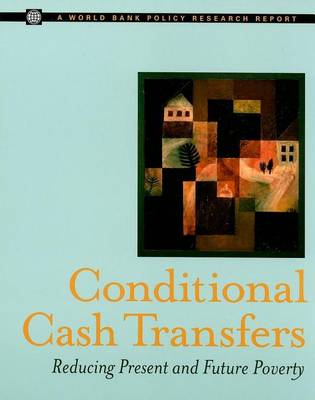Conditional cash transfer (CCT) programs are one of the most popular interventions in the social sectors in developing countries. While the details of program design vary, all of these programs transfer resources to poor households conditional on them taking active measures to build up the human capital of their children (enrolling their children in school, taking them for regular health care visits). In almost every instance, transfers are made to women. CCT programs have two clear objectives. First, they seek to provide poor households with a minimum consumption floor. Second, in making transfers conditional, they seek to encourage the accumulation of human capital, and break a vicious cycle whereby poverty is transmitted across generations. This book provides an assessment, based on thorough research, of CCT programs as an instrument of social policy.The report pays particular attention to the following four themes: the conceptual basis to understanding CCT programs and their role in social policy; the evidence of impacts on consumption poverty, education, health, and nutrition outcomes; the evidence on the effects of alternative design features such as choice of targeting methods, size of transfers and types of conditions; and, the role of CCTs and similar programs in the context of social protection policies.
- ISBN10 0821373536
- ISBN13 9780821373538
- Publish Date 19 June 2014 (first published 28 February 2009)
- Publish Status Active
- Publish Country US
- Imprint World Bank Publications
- Format eBook
- Pages 384
- Language English
